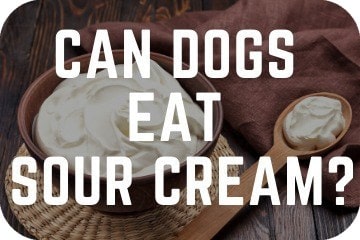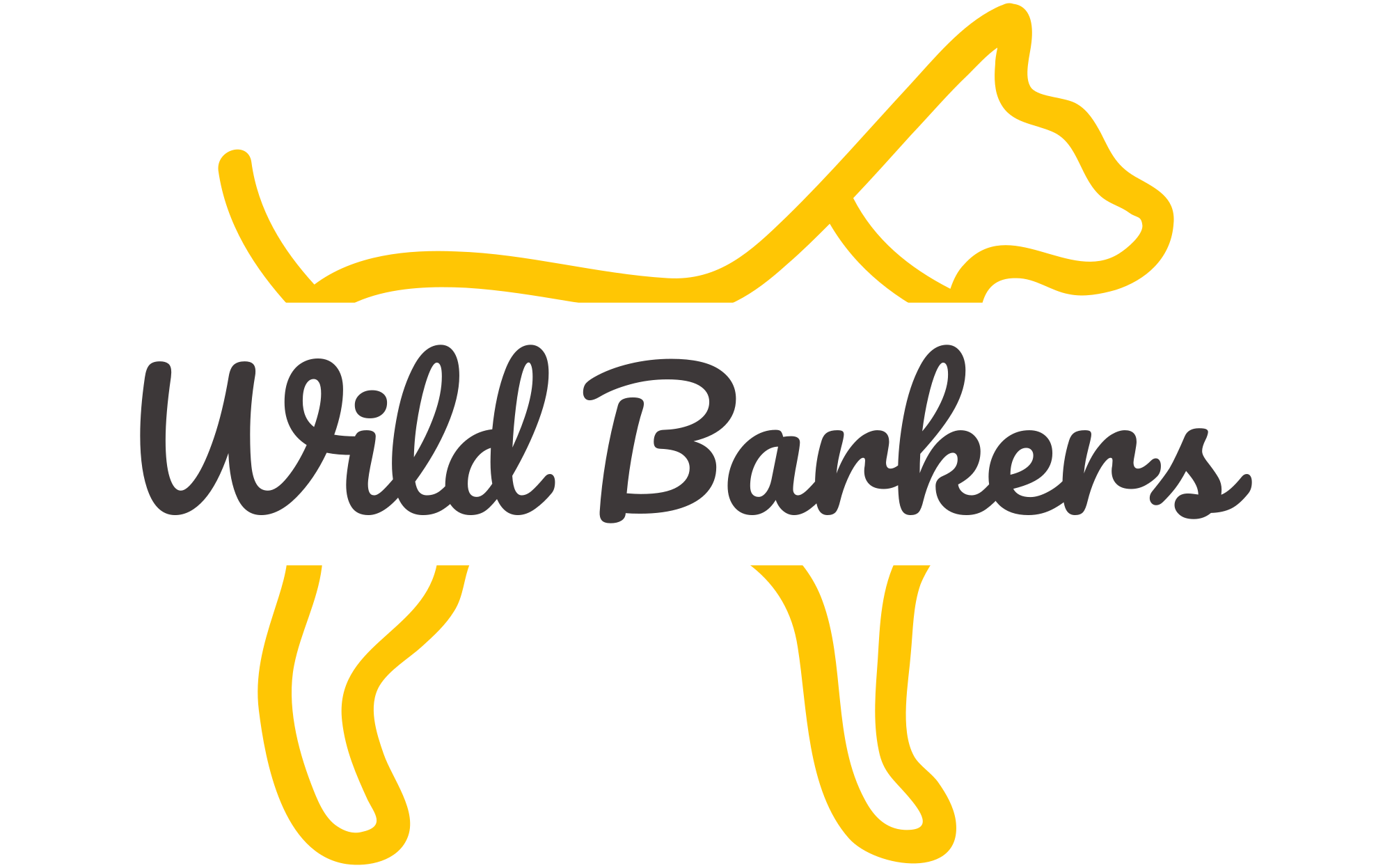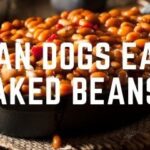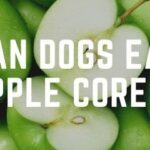
Can dogs eat sour cream? Yes, but in moderation. Sour cream is not the most nutritious of foods for dogs. It contains high levels of fat and can negatively affect lactose intolerant dogs due to the milk. It is also important that your dog has plain sour cream, and no other added ingredients are added (onions, chives).
Busy? Get Your Hands Paws On The Answers Quickly…
- Are Dogs Allowed Sour Cream?
- What Are The Symptoms Of Lactose Intolerance In Dogs?
- Other Nutritional Human Food For Dogs
- Healthy Treat Ice Cream (not sour cream) Recipes For Dogs
- FAQs

Sour cream is not toxic to dogs, but it offers very little nutritional value. Sour cream is very high in fat and has very low levels of vitamins and minerals. There are plenty of other more nutritional and beneficial human foods that dogs can eat (see below).
As well as having no nutritional value, dogs that are lactose intolerant should be kept away from sour cream as it contains milk.
Finally, most shop-bought sour creams may contain added ingredients such as onions and chives. Onions can be toxic to dogs and should not be given to them at any time. If you want to feed your dog sour cream, ensure you check the packaging beforehand to guarantee it does not contain onions as this may cause anemia in dogs.
Symptoms of Anemia
> Light or Pale Gums
> Muscular Weakness
> Becomes Lethargic
> Loss Of Appetite
> Loss Of Coordination (Bumps into things)
> Blood In Urine
If you notice any of these symptoms after your dogs has eaten sour cream containing onions and chives, you should contact your local veterinarian straight away to seek further professional advice.
WHAT ARE THE SYMPTOMS OF LACTOSE INTOLERANCE IN DOGS?

After your dog has eaten sour cream or other dairy products, you might have noticed them become sick. This may be because they are lactose intolerant, which causes a reaction to dairy products. Some dogs can have as little as a drop of milk, and their stomachs will react negatively while other dogs could drink bowl after bowl and show no signs.
If you’ve given your dog, sour cream, or other dairy products for the first time, I’m sure they lapped it up, licked their lips, and treated it like any other meal. However, there may be some symptoms that follow, which give you an indication of whether your dog is lactose intolerant or not.
Lactose intolerant symptoms:
> Excessive Pooping
> Gas
> Abdominal pains
> Diarrhea
> Vomiting
If they show these symptoms, it may be a good idea to check in with your veterinarian to run some tests to determine whether your dog is lactose intolerant or not. In the meantime, you should consider removing any dairy products from your dog’s diet and find non-dairy alternatives.
OTHER NUTRITIONAL HUMAN FOOD FOR DOGS

A mixture of fruit and vegetables help provide dogs with the vitamins and minerals they need. Using small pieces of fruit and veg as an alternative to shop-bought treats is a great way of incorporating it into their day to day diets. Below is a list of highly nutritious fruit and vegetables that dogs can eat. You can find fun and exciting fruit + vegetable activities for your dogs here, “DIY Games and Toys.”
Vegetables
Broccoli
A very good source of protein as well as other vitamins and minerals, including; dietary fiber, vitamin A, C, K & B6, folate, potassium, and manganese. Broccoli can be given to dogs raw or cooked; it makes an excellent alternative to high fat shop bought treats.
Carrots
An excellent source of vitamins and minerals for dogs. Carrots have high levels of vitamin A & k, biotin, potassium, and vitamin B6. Placing carrots in the freezer and then using them as treats help your dog’s dental health. Due to the strength of the frozen carrot, it helps to remove a build-up of plaque around their teeth when they begin gnawing and chomping on it.
Kale
One of the most nutritious vegetables on planet earth. Kale is very high in vitamin A, K, C, B6, calcium, manganese, and potassium. When cooked, some of the nutrients are reduced, therefore steaming kale is the better method of cooking to ensure the high levels of nutrients are maintained.
Fruits
Blueberries
Blueberries are an excellent choice of healthy snack for your dog. They are extremely low in calories yet have high amounts of vitamin C & K, fiber, and antioxidants. Vitamin C and fiber are important components of a canine’s diet, as well as the antioxidants that help fight off diseases, illnesses and decrease the risk of arthritis in older dogs.
Guava
Guava can be an excellent treat for dogs! As with all ‘human’ foods, dogs should be given guava in moderation. Guava is highly nutritious and provides dogs with a variety of vitamins and minerals; these include; dietary fiber, vitamins A & C, potassium, and magnesium. It is important to note that guava is also high in carbohydrates and sugars and therefore, should only be given as a small treat.
Papaya
Papaya is very nutritional for dogs, but make sure you remove the pips and peel. When given to your dog in moderation, papaya offers a wide variety of nutritional benefits, and the enzymes are excellent for promoting a healthy gut in dogs and humans. Papaya is very high in fiber, among other vitamins and minerals, such as; magnesium, potassium, and vitamin C.
Persimmons
Dogs are allowed to eat persimmons. However, you must remove the seeds and the pit before they eat it. The seeds and pit are not toxic to dogs but can cause indigestion problems such as blockages in the stomach, which can have serious implications.
Persimmons are very nutritious and have high levels of vitamin C as well as iron and calcium. It is good for dogs to have some human foods incorporated into their diet as it provides them with the nutrients needed to ensure they’re a healthy dog.
Plums
Dogs can eat plums, but you must take extra precautions. Plums are an excellent source of nutrition for dogs as they are low in calories but contain high levels of fiber, vitamins A, C, K, and potassium. As well as this, they also contain antioxidants, which can help improve a dogs’ health and well-being later in life. Antioxidants have proven to help reduce inflammation around the muscles and joints, which decreases the risk of arthritis.
HEALTHY TREAT ICE CREAM (NOT SOUR CREAM) RECIPES FOR DOGS
This dog-friendly ice cream is an excellent treat on a hot summer’s day. When using peanut butter, ensure it’s not a sugar-free variety as this may contain xylitol, which is highly toxic to dogs. Plain yogurt is best as some flavored yogurt may cause your dog to have an upset stomach.
Banana and Peanut Butter Ice Cream
Ingredients:
- 1 banana
- 2 cups plain yogurt
- 2 tbsp peanut butter
Directions:
1. Place all ingredients in a blender and blend to a creamy mixture.
2. Place mixture evenly into silicone molds (or ice cube tray)
3. Freeze for at least 24 hours before feeding to your pup.
If using silicone molds, this is the option we chose to use.
*Recipe inspired by food with feeling*
Strawberry and Banana Dog Ice Cream
Ingredients:
- 10 fresh chopped strawberries
- 1 medium-sized banana
- 1 cup natural plain yogurt (low fat or normal)
Directions:
1. Mash the strawberries with a potato masher or equivalent.
2. Add the banana, carry on mashing.
3. Add the yogurt whilst stirring and ensure all ingredients are mixed.
4. Pour the mixture into a freezer compatible container and freeze for a minimum of 4 hours (overnight is better).
5. Serve the frozen yogurt in your dog’s bowl or put inside a kong toy.
*Recipe inspired by bigger bolder baking*
Peanut Butter and Jelly Dog Ice Cream
Ingredients:
1 medium-sized ripe banana
1/2 cup peanut butter (ensure it does not contain xylitol)
1 cup natural plain yogurt (low fat or normal).
5 strawberries, pureed
Directions:
1. Mash the banana using a fork, stir in the peanut butter and slowly add the plain yoghurt
2. Mix all ingredients until they’re well combined
3. Fold in the puree strawberries
4. Pour the mixture into a freezer compatible container and freeze for a minimum of 4 hours (overnight is better).
5. Serve the frozen ice yoghurt in your dog’s bowl or put inside a kong toy.
*Recipe inspired by bigger bolder baking*
Can dogs eat onions?
All parts of the onion plant are highly toxic to dogs and can cause them serious harm. Raw, cooked, fried or powdered, onions will also cause your dog some problems. Powdered onion is an added ingredient into a lot of foods, therefore check the packaging before feeding something to your dog.
Is peanut butter bad for dogs?
No, in fact, peanut butter can provide dogs with high levels of protein. When purchasing peanut butter, ensure you don’t purchase a reduced-fat or sugar-free product as this tends to contain xylitol, which is highly toxic to dogs.
Can dogs have 2 eggs per day?
No, dogs should only be given a maximum of 1 egg per day.
Looking for more pawsome posts? Check these out…
Can Dogs Eat Persimmons?
How To Make A Snuffle Mat
Can Dogs Eat Baked Beans?
Can Dogs Eat Broccoli?
Why Do Dogs Wink?
Disclaimer: Each dog is different, and every circumstance is different. All efforts have been made to provide accurate information. However, it is not provided by a qualified Veterinarian, Veterinarian Surgeon, or Behaviorist. The information provided is purely educational. The information should not be used as an alternative or substitute for medical care. If you have any health or medical concerns, contact a qualified Veterinary Surgeon or Veterinarian immediately.










No Comment! Be the first one.